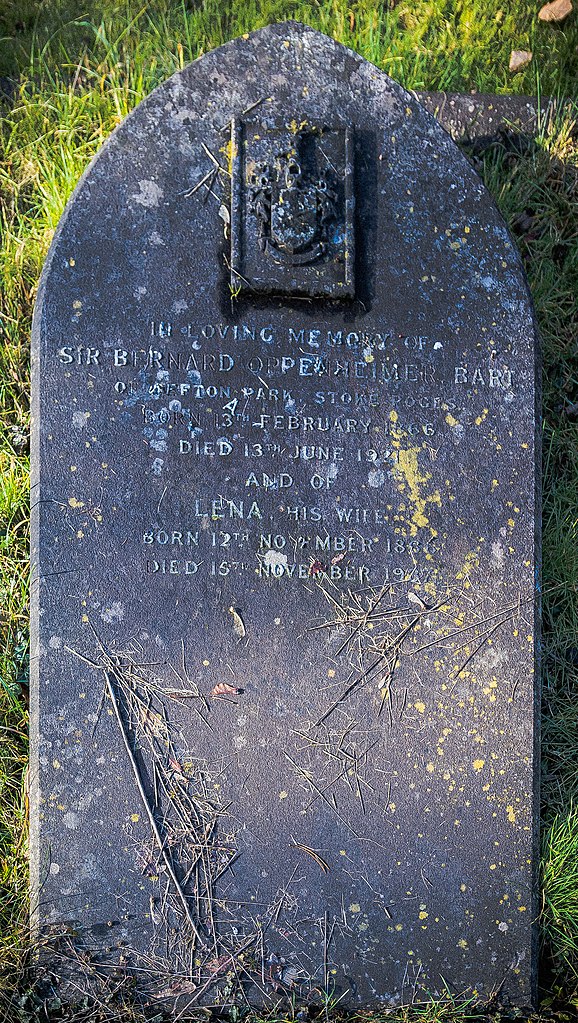Bernard Oppenheimer
By Eloise Taylor. Dr Challoner’s School
 Bernard Oppenheimer is a man forgotten by history yet also a man who transformed the lives of those in need during his time. Sir Oppenheimer was a South African diamond miner and philanthropist who witnessed the rise of unemployed, disabled ex-soldiers during the First World War. Troubled by this, he opened a factory in Brighton to retrain and rehabilitate them and that year, he also bought an estate in Stoke Poges, a small village in Buckinghamshire.
Bernard Oppenheimer is a man forgotten by history yet also a man who transformed the lives of those in need during his time. Sir Oppenheimer was a South African diamond miner and philanthropist who witnessed the rise of unemployed, disabled ex-soldiers during the First World War. Troubled by this, he opened a factory in Brighton to retrain and rehabilitate them and that year, he also bought an estate in Stoke Poges, a small village in Buckinghamshire.
At Oppenheimer’s factory, amputee ex-soldiers were trained in diamond-cutting, receiving free training for half a year in a safe, warm environment; a pleasant contrast to the dangerous factories that had unfortunately become standard for workers during the First World War. There was also a clinic in the factory, a testament to Oppenheimer’s caring nature towards the soldiers he helped. Oppenehimer’s work came at a time when it was essential; over 2 million British soldiers were disabled to some degree in that conflict.
The more severely disabled of these soldiers were affected most severely; struggling the most to find employment and unfortunately, in many instances, ignored by a society that didn’t welcome or understand disabled individuals. Oppenheimer dedicated the last years of his life to changing that narrative, providing disabled veterans with skills, reintegrating them into society and fulfilling the nation’s social responsibility towards its injured soldiers. His business was founded on the principle of charity, even in a financially unstable and frightening time, he helped those most in need, rather than employing able-bodied, skilled workers who would have been more profitable to him financially. Rising far above the minimal standard of medical care, Oppenheimer showed society the importance of giving independence and purpose through work to disabled veterans.
500 men had been trained at the factory by the time it closed in 1922 after the UK diamond industry declined. While a seemingly insignificant number compared to the vast number of soldiers who tragically passed in the war, each man helped by Oppenheimer had his life transformed. For one man to improve the lives of so many is an extraordinary achievement and his work over a century ago should be credited towards the far better care we have for disabled veterans today. Remembering Oppenheimer’s legacy pays tribute to the sacrifice of the soldiers he helped as well as his work. While Oppenheimer was made a Baronet in 1921, the year he passed, he has largely been forgotten since his death. In a universally difficult time, everyone was compelled to contribute to the war effort, making it easy to forget the sacrifice of individuals like Oppenheimer who weren't prominent politicians or war heroes. However, it is crucial to remember men like Oppenheimer; he was an inspiring figure of social responsibility and the selfless values he founded his work on will forever be relevant to society.
Photograph: Grave of Sir Bernard Oppenheimer in St Giles' churchyard, Stoke Poges. Photo: Harvey Whittam (Creative Commons Attribution-Share Alike 4.0 International)

